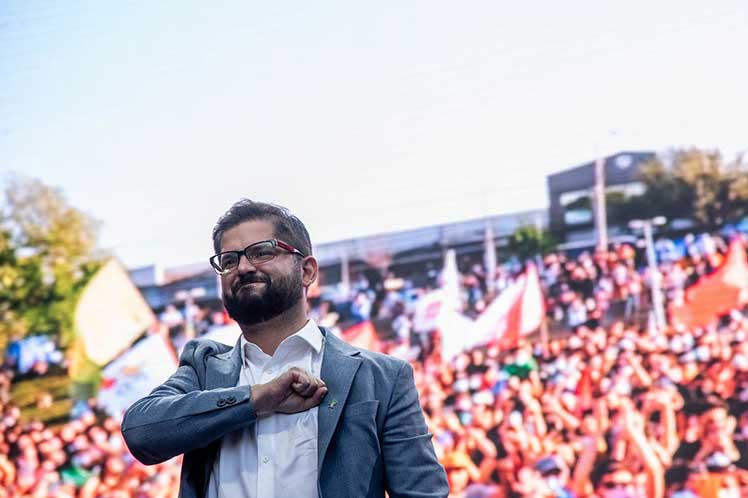Despite forecasts that predicted a close voting, the young candidate of the left-wing coalition Apruebo Dignidad, in Spanish I Support Dignity, won Sunday’s elections with 55.86 percent of the votes, 11.6 points on top of his rival, the ultra-right-wing Jose Antonio Kast, of the Social Christian Front.
Boric obtained 4.6 million votes, surpassing former President Eduardo Frei, who obtained 4 million in 1993.
The elections were also historic for breaking all turnout records since the voluntary suffrage was put into effect in 2012.
According to data from the Electoral Service (Servel), 8.3 million Chileans went to the polls in the second round, for an attendance of 55 percent.
“We are facing a historic change of cycle and we cannot miss it”, Boric said in his first speech to the nation. The President-elect does not represent the traditional parties that governed the country since the return to democracy, in 1990.
As the leader of the Student Federation of the University of Chile, he led, together with Camila Vallejo, Giorgio Jackson and Karol Cariola, the large demonstrations that shook the country in 2011 to demand free and quality education.
During the 2019 social outburst against the neoliberal model, he was part of the Peace Accord that opened the way to draft a new constitution to replace the one in force since 1980.
His government program foresees modernizing and strengthening the State, changing the current pension system to benefit retirees, raising taxes on the richest and guaranteeing a universal health system.
Recovering employment, especially for women and young people, letting students off their educational debt and supporting small and medium-sized enterprises are also among his priorities.
mh/car










